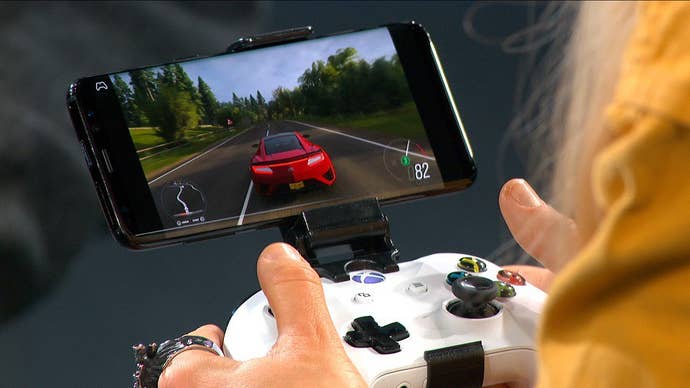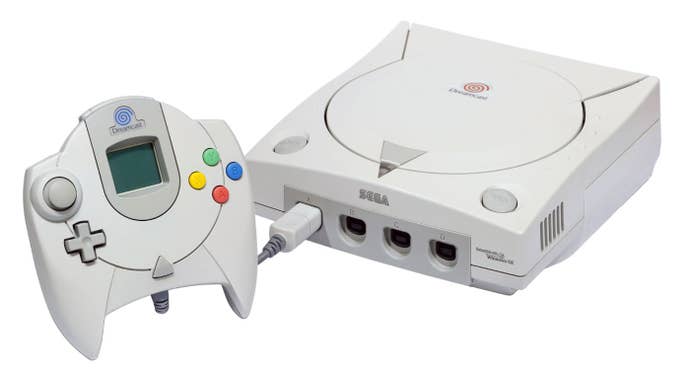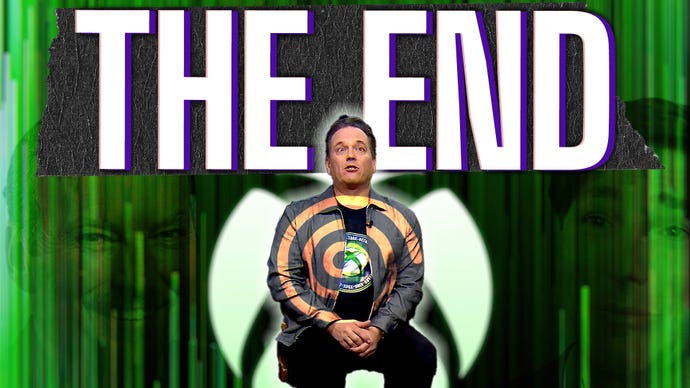The problem with Xbox is that you don’t need an Xbox, and that's a hard circle to square
Xbox Anywhere, except under your TV where it's supposed to be.
This week The Shiitake Show asks: what's the point of Xbox? That's not us being sarcastic or snide. It's a question that everyone in the industry, not least Microsoft themselves, needs to find an answer to. A conflicted, convoluted vision for the platform has left it struggling for an identity at the dawn of a future it is trying to forge for us all, one where the console itself no longer matters. And yet, Xbox still needs us to buy Xboxes. It's a tricky position to be in, compounded by the perception that Xbox doesn't have any compelling exclusives. Watch below.
That’s not to say the Series X and S aren’t fine machines. They absolutely are – yes, even the “underpowered” and much maligned Series S, which I’ve been a big advocate for in the past and will continue to be because, in a nutshell, it’s the most bang-per-buck deal in gaming. A lot of people pointed to the Baldur’s Gate 3 fiasco as a big indicator that the Series S was Bad Actually. As things stand right now, the plucky machine is by a considerable margin the cheapest place to play Baldur’s Gate 3. And Cyberpunk 2077. And Starfield. And every existing or future current-gen only game, excluding PS5 exclusives and the odd rarity that never makes it off PC. For a box that costs half as much as a decent low-mid range GPU, that’s incredible.
But if you already have a halfway decent GPU sitting inside a halfway decent PC, you simply don’t need an Xbox. Not even the cheap one, such is the business model of Xbox Everywhere. PC Game Pass essentially delivers the entire Xbox experience as a handy little Windows app. Hell, you don’t even need a proper PC: if you own a Steam Deck and have ten minutes of free time, you can get Game Pass running via Xcloud, and very nicely too. Microsoft provides an official guide for the procedure. It even includes bespoke artwork.
Android phones. Samsung TVs. Your mum’s crappy laptop with integrated graphics and duct tape over the webcam port. Any one of these devices technically negates the need for an Xbox, in as much as it’s a device for accessing Xbox games. And this is a problem, because Microsoft is still ostensibly in the business of selling Xboxes.

It’s a bewildering proposition. Buy an Xbox! But rest assured that you don’t need it. So buy one today! If you like. Similarly, Microsoft’s desire to be a major third party multiplatform publisher while also enjoying the prestige of being one of the big three platform holders smacks of an unclear vision. Xbox wants to be all things to all people: a premium console for hardcore gamers. The cheapest console on the market for casuals. A huge portfolio of first-party studios. The biggest third-party publisher. A platform. A service. A box. An app. With Nintendo, you know you’re getting the Mario machine. With Sony, you know you’re getting the premium, ultra-budget narrative exclusives that end up as HBO shows. The Xbox pitch is much harder to summarise with any succinctness, but what everyone knows for certain is that it doesn’t have The Last of Us.
The main reason why Xbox doesn’t have any kind of clear vision or proposition is in part because it’s still playing catch up after a history of costly disasters (RROD, Don Mattrick, the entire nation of Japan shrugging). But mostly it’s because all any big business cares about is growth: a percentage on an Excel sheet somewhere that either points up (good, exec bonuses) or down (bad, layoffs, also exec bonuses). Baffling corporate decisions are often only baffling because normal people don’t think in terms of constantly trying to appease the most demanding and destructive metric our species has ever developed a fixation on. Our somehow even worse equivalent of the gods that compelled people of the ancient world to sacrifice each other to secure their favour, but we don’t even have the excuse of a sincerely held belief in divine bargaining. Everyone knows that endless growth is an impossibly stupid notion.

In contorting itself to chase endless growth, but without the sort of easily defined and commonly understood USP enjoyed by Nintendo and PlayStation, Xbox is a business that often seems at odds with itself, committing strange acts of self-sabotage evocative of SEGA during its twilight years as a platform holder when it occupied Microsoft’s current position as Number Three of The Big Three and kept doing daft s**t like launching consoles that competed against each other, habitually failing to capitalise on the big franchises it owned, and generally just not making much sense with its messaging.
It’s easy to see why a lot of us old gits have been thinking about the Dreamcast of late: a decent machine that offered a lot of bang per buck compared to the equivalent PlayStation, and yet, got buried by it. And resulted in SEGA leaving the hardware business entirely, which led directly to such unthinkable realities as Sonic the Hedgehog showing up in the same games as Mario, and a huge void waiting to be filled by the very brand we’re currently discussing.
But while those comparisons are tempting, they’re not very compelling beyond a surface level. Microsoft remains the largest company on earth by market cap, and I don’t know what that means, but it certainly isn’t a position that SEGA has ever been in danger of getting into. And while it often seems as though PlayStation is the healthier brand, it should be noted that Sony has its own problems, is suffering from the exact same stagnant growth issue that has caused the wider industry to shed thousands of jobs in recent times, and is making plenty of third party manoeuvres of its own as a result.

It seems that consoles just aren’t a growth business any more, and so we are going to see their relevance decline over the coming years although they won’t disappear completely. We’ll see a PS6, and I’ll wager a PS7, and their Xbox counterparts. They'll be running custom ARM chips and leveraging frame generation in their graphics tech, and people on Reddit will moan about that incessantly. Nintendo will continue to straddle the line between handheld and home, as I’m convinced that the Switch’s big differentiator is a core part of Ninty’s offering now. Meanwhile, Microsoft’s portfolio of studios will continue to put out eminently decent, if not earth-shattering stuff: games like Hi-Fi Rush, Pentiment, and the upcoming Avowed and Hellblade 2 indicate a promising direction of travel for the Xbox Service Or Platform, one characterised by a steady stream of smaller, more interesting games and experiences, rather than an emphasis on trying to chase Sony’s niche of huge prestige projects that take the best part of a decade and hundreds of millions of dollars to make.
If Xbox’s thing turns out to be that, a place where ideas can thrive, and where the democratising effect of popular subscription service like Game Pass gives the business a cushion of revenue that allows its creatives to constantly go off and make stuff like Pentiment alongside tentpole stuff like Starfield, it would be a good thing for everyone. A diverse and eclectic portfolio of studios making a steady stream of double-A event games and B-tier curiosities strikes me as far more sustainable than a slate full of GAAS slop and HBO bait.
Xbox is in a position to deliver this. They just need to, y’know, get on with it.


